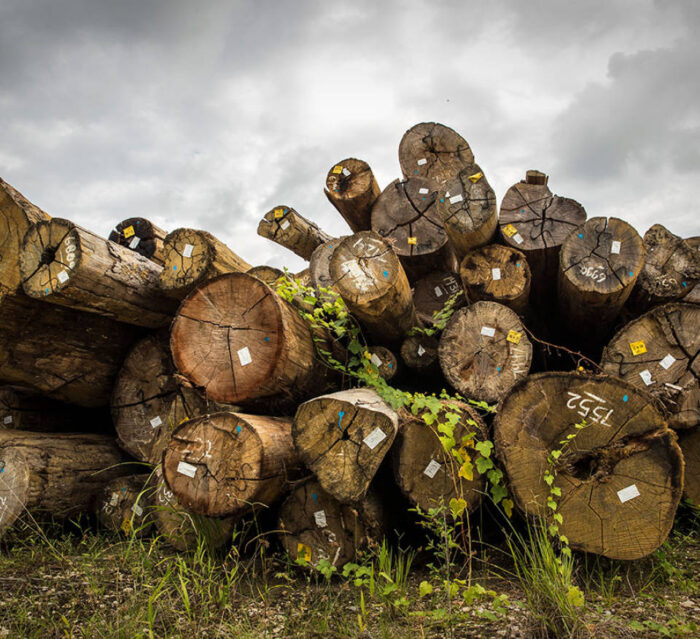The Forests & Finance Coalition’s newly released “Banking on Biodiversity Collapse” report provides updated insight into how global financial institutions contribute to tropical deforestation and ecosystem degradation. This year’s edition includes updated financial data to July 2024 for credit flows and to July 2025 for investment holdings, analyzing 300 companies across six tropical forest-risk commodity sectors: beef, palm oil, pulp and paper, rubber, soy, and timber. The companies operate in Southeast Asia, South America, and Central and West Africa.
Financing Destruction Despite Global Commitments
Despite international commitments such as the Global Biodiversity Framework (GBF), which aims to halt and reverse biodiversity loss by 2030, financing to sectors linked to deforestation continues to rise. Our analysis reveals that over $395 billion has been directed to these sectors since the Paris Climate Agreement, with $77 billion in just the last year and a half (January 2023 – June 2024). Investments have also risen by 7%, while credit surged to $53 billion in 2023, up from $48 billion in 2022.
Governments must act now to strengthen regulations that hold financial institutions accountable. We need binding measures to ensure that finance no longer drives deforestation and biodiversity loss but instead supports the preservation and restoration of vital ecosystems.
This year’s report spotlights the failures of voluntary corporate initiatives like the Principles for Responsible Banking (PRB), the Net-Zero Banking Alliance (NZBA), and the Taskforce on Nature-related Financial Disclosures (TNFD). More than half of the top 30 banks are part of these initiatives, yet there is no evidence of reduced financial flows to activities that cause tropical deforestation.
Strengthening Financial Regulations to Protect Biodiversity
This year, the coalition published a new assessment of financial regulations, “Regulating Finance for Biodiversity.” It examines whether the current financial sector regulations in key areas are adequate to stop the tide of financing from the banks and investors most responsible for financing tropical deforestation — financial institutions in Indonesia, Brazil, China, the European Union, and the United States. It reveals that without significant financial sector reforms, the Global Biodiversity Framework (GBF) — a bold and necessary commitment adopted by 196 countries to halt and reverse biodiversity loss before 2030 — will be impossible to achieve.
To truly protect biodiversity and uphold human rights, we must redirect financing away from destructive industries and toward sustainable, community-led solutions. Indigenous communities, who have long been stewards of biodiversity, must be at the center of this transition, supported by stronger legal protections and accountability mechanisms for financial institutions.
You might not be surprised to learn that instead of real accountability, corporations have a different idea. Take the TNFD for example, a scheme devised by 40 executives from some of the world’s biggest companies on how business should report on biodiversity. Yet the scheme is riddled with loopholes, ignores the rights of Indigenous Peoples and almost half of TNFD’s decision-making body are themselves embroiled in serious allegations of environmental destruction and human rights abuses.
Governments must act now to strengthen regulations that hold financial institutions accountable. We need binding measures to ensure that finance no longer drives deforestation and biodiversity loss but instead supports the preservation and restoration of vital ecosystems.
Explore the data and read both reports on the Banking on Biodiversity Collapse landing page and Forest & Finance platform. Here you can dive into our financial flows dataset, policy assessments and read the latest news and analysis relevant to the forests and finance issues.
